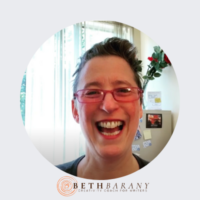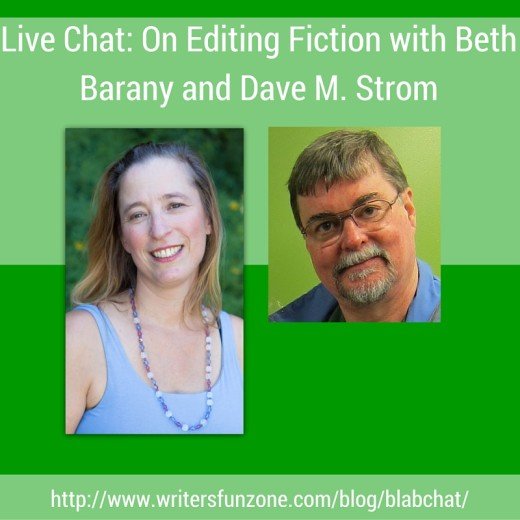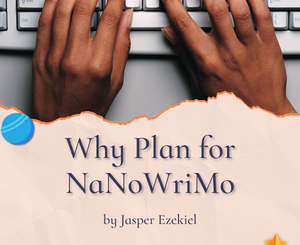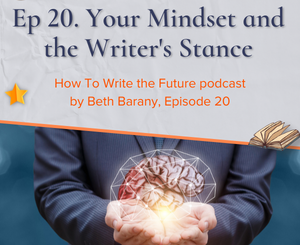Book Review of Limits and Beyond
In episode 9 of the How To Write The Future Podcast, Beth Barany discusses what topics she could discuss in future episodes and talks about the book, Limits, and Beyond.
Have a listen to the latest episode here: Apple Podcasts | Google Podcasts | Spotify | Amazon Music | Buzzsprout | Podcast Addict | Listen Notes | Youtube
ABOUT BETH
 Beth Barany is an Award-winning Novelist, master neurolinguistic programming practitioner, and certified creativity coach for writers, including being a Workshop Leader & Keynote Speaker. Beth has published books in several genres including young adult fantasy, paranormal romance and science fiction.
Beth Barany is an Award-winning Novelist, master neurolinguistic programming practitioner, and certified creativity coach for writers, including being a Workshop Leader & Keynote Speaker. Beth has published books in several genres including young adult fantasy, paranormal romance and science fiction.
Learn more about Beth Barany at these sites:
Author site / Coaching site / School of Fiction / Writer’s Fun Zone blog
RESOURCES
Limits And Beyond: 50 years on from The Limits to Growth, what did we learn and what’s next?
https://books2read.com/u/4X2n95
Sign up for the 30-minute Story Success Clinic here:
https://writersfunzone.com/blog/story-success-clinic/
Creativity Coaching for Writers:
SHOW NOTES
“There is a growing evidence of the huge untapped innate capacity in all humans to learn and come to grips with how complex living systems change.”
In this episode, Beth Barany shares a review of the book, LIMITS AND BEYOND, and discusses possible future episode topics.
ABOUT THE HOW TO WRITE THE FUTURE PODCAST
The How To Write The Future podcast is for science fiction writers who want to write positive futures and bring those stories successfully out into the marketplace. Hosted by Beth Barany, science fiction novelist and creativity coach for writers.
TRANSCRIPT for 09. Book Review of Limits and Beyond
Hi. Welcome back to the podcast, How To Write The Future. I’m Beth Barany, your host. In this podcast, I help science fiction and fantasy writers create positive futures. Because when we vision what is possible we help make it so.
Today, I’m starting a new feature of book reviews, and even though I have not yet finished this book and have just started this book, I think it’s a great jumping off ground to talk about and maybe encourage you to check out this book as well.
The book is Limits And Beyond, with essays from the original The Limits To Growth authors, Dennis Meadows, and Jorgen Randers and many more. Report to the Club of Rome. The book is edited by Ugo Bardi and Carlos Alvarez Pereira.
I have literally just started with this book. I have read the Foreword and I’m in the Introduction. I wanted to read to you a few bits from this book and riff off of them for a little bit.
From the Foreword by Mamphela Ramphele and Sandrine Dixson-Declève, co-presidents of the Club of Rome.
They tell us that [quote], “this book is a rich compilation of deep reflections by members of the Club of Rome as well as other partners who share a global vision of the world characterized by wellbeing for all within an equitable global order for a healthy planet.”
I really love that there are people in the world who care about this. There are many, many people writing and thinking and sharing on these topics. I just want to bring out that beacon of hope through this podcast, that storytellers, we can be a part of creating visions for healthy planet for focusing on wellbeing, for bringing out this notion of an equitable global order.
Now understand in fiction, we need conflict. At least that’s the model of storytelling that we’re all used to, that many of us in the West are used to. Are there other models of storytelling? Yes. And that could be for a future episode.
If you’re interested in having me explore other models outside the Western models where maybe conflict doesn’t take the same position let me know.
I want to come back to the fact that any one of us can go to the library or buy a book that is talking about how to create an equitable global order for a healthy planet.
I do want to say something about the word Order. I feel like life is about disorder to order and then disorder again. So that’s on a philosophical scale. I know some people object to the idea of a global order, as if there’s some kind of top-down leadership telling us all how to live. But I don’t think that’s what they mean here. I think what they mean is something we can rely on, a structure of cultures that we can go about day-to-day lives in without fear of disruption or chaos brought on by frankly, many manmade, mostly men, choices.
Here’s another quote from the book that I really loved. It says:
” Several of the co authors suggest it is more than time to overcome this and adopt transformational economic models that embrace a systemic perspective to address humanity’s challenges.”
They’re reflecting backwards in the last 50 years, and they’re noticing that as many of us can notice that people have been very enamored by a particular school of economic thought that people call neo-liberalism, which basically at its bottom line is obsessed with uneconomic growth at all costs. This notion that economies are just going to continue to grow and grow and grow, and that’s how it is, but actually, it doesn’t have to be that way.
We can have different economic models, and everybody’s needs still can be met.
This book will talk about the transformational economic models that embrace a systemic perspective to address humanity’s challenges.
One of the downfalls of near liberalism and also all colonial attitudes towards extracting resources is that they have a very narrow view. They don’t consider or see or care about the side effects of such extractive economics.
So, why not write stories that talk about these transformational economic models?
Why not educate ourselves into what are these transformational economic models?
I’m very curious to see what the thinkers have said, and in this podcast, I can definitely explore some people who are actually living these transformational economic models. And then how does that relate to our storytelling? How can we bring those ideas into a society or culture that we create in our stories and that you create?
So again, if you are interested to discuss and learn more about transformational economic models, I definitely recommend this book, Limits And Beyond.
I could definitely offer more resources and do a whole show just on that topic and even interview an expert or two. Okay. So let me know if you want more of that.
Here is another important point, which is that this book is going to have some chapters that remind us that there are no limits to learning. I love that perspective. It’s very hopeful. And it’s very different than a closed mindset. It’s very much an open mindset.
So here’s the quote.
” There is a growing evidence of the huge untapped innate capacity in all humans to learn and come to grips with how complex living systems change. Work done in the most challenging environments has demonstrated the innate capacity of people to adapt. It’s most important enabler is the encouragement for each to travel inwards, to liberate themselves from a sense of worthlessness and fear of failure. Self liberating education and learning environments tap into the innate capacity of even the poorest, young and old, and unleash enormous energy and creativity.”
To me, this is so exciting that this book is touching on this. I am an educator at heart, and a coach and a consultant. So to really focus in on self liberating education and learning environments really excites me. And I would just like to say being able to podcast from the comfort of my own home is one of those self liberating learning environments for me and for you, the listener.
Also, I love this focus on enormous energy and creativity.
I believe that we humans are all creative. And as storytellers, it is our job to bring in that creativity, into the stories we write and into the worlds we build. So I encourage you to think about: what does this look like for you– self liberating education and learning environments? How can you make learning even more fun and easier? What support do you need? How does your environment need to shift or change so that you are nurtured, and you can unleash your energy and creativity?
Here’s another quote about how humans are really part of nature.
Here’s the quote:
“Healing the legacy of brokenness imposed by dominant ways of thinking and relating to others and to nature is essential for all of us. Healing this brokenness is the opportunity awaiting humanity to become open, to return to the essence of what it means to be human. Let us reclaim our humanity and celebrate mother nature in her full splendor.”
I love this focus because there has been a model in especially Western culture– I really can’t speak to other cultures– I’m definitely descendant of European culture, myself, mostly Jewish, a little bit of English, Irish and Scottish, but most are mostly Eastern European Jew. And so my whole culture from my background has been steeped in Western culture, which for the last 500 years or so has been dominated by the idea that humans– and of course, men wrote these things down and dominated women as well,– where humans or man dominates nature, and dominates anything not considered rational. That’s a whole other discussion. But to notice how we’re actually part of nature, and what does that mean for the wellbeing of ourselves, and also, what does that mean about being human?
I truly think that one of the domains of our future is about this core discussion of what does it mean to be human. There’s a lot of things impacting this discussion that I could go into in future episodes.
I highly recommend Limits And Beyond, if you are at all interested, in, number one, looking backward, reflecting over the last 50 years, but also helping you look forward.
That’s it for today’s episode.
Please subscribe to How To Write The Future.
Please follow me on Twitter and LinkedIn. Email me. My email is in the show notes.
Have a wonderful creative time, everyone. Write long and prosper.
Loved this episode? Leave us a review and rating here: https://www.buzzsprout.com/2012061
or in your podcast home of choice.
Connect with Beth Barany
Twitter: https://twitter.com/BethBarany
LinkedIn: https://www.linkedin.com/in/bethbarany/
Email: Beth@BethBarany.com
CREDITS
EDITED WITH DESCRIPT:
https://www.descript.com?lmref=_w1WCA (Refer-a-Friend link)
MUSIC CREDITS :
Music from Uppbeat (free for Creators!): https://uppbeat.io/t/soundroll/fuzz-buzz
License code: UMMKDRL02DFGKJ0L. “Fuzz buzz” by Soundroll.
Commercial license: https://musicvine.com/track/soundroll/fuzz-buzz.
DISTRIBUTED BY BUZZSPROUT: https://www.buzzsprout.com/?referrer_id=1994465 (Refer-a-Friend link)
SHOW PRODUCTION BY Beth Barany
2022 BETH BARANY
For more “How To Write the Future” episodes, go here.
If you’d like to invite Beth onto your podcast, drop her a note here.




